ROS (Robot Operating System) is a common robot software platform which intents to integrate the world’s robotics research energy, and is completely open source. Anyone could just install ROS and immediately get access to all the resources that ROS integrates.
Over the several years, ROS is growing faster than ever. It can be used not only in the laboratory but in the commercial and services industries. If you subscribe to some mailing list such as Robotics Worldwide, you could see that around 70% of robotics job offerings require ROS.
However, this system is huge and complex. There are over 3,000 packages in the ROS ecosystem, and those are constantly updated every day. It requires a lot of effort to learn ROS and it is relatively hard for a beginner.
If you Google it, you will find a full of variety of ROS learning resources, everyone implementing a different learning method. But which kind of learning method is most effective for you? Check the following 5 ROS learning methods and find the best one for you:
-
Official tutorials: ROS Wiki
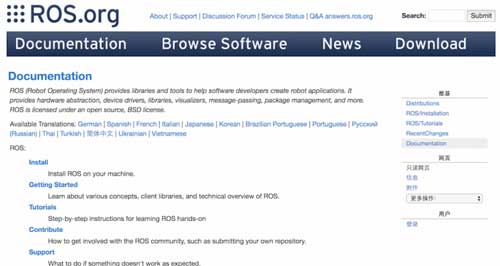
The official ROS tutorial website provided by OSRF is very comprehensive and it is available in multiple languages. It includes details for ROS installation, documentation of ROS, ROS courses&events, etc. and it’s completely free. You just need to follow the ROS tutorials provided on ROS Wiki page, and get started.
This type of tutorial belongs to the traditional academic learning materials. They start by describing concepts one by one, following a well-defined hierarchy. It’s good material but easy to get lost while reading, and it takes time to grasp the core spirit of ROS.
-
ROS Video Tutorials:
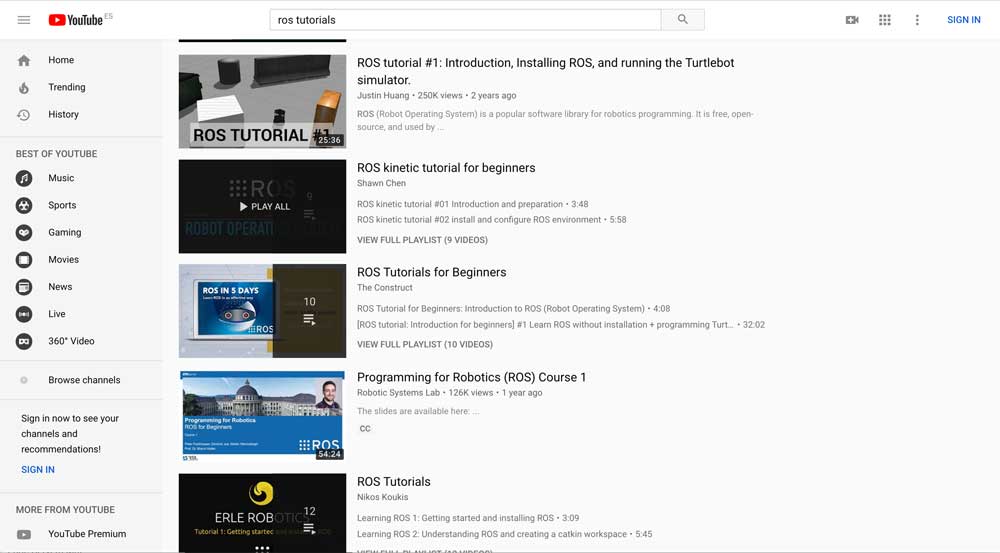
ROS video tutorials provide a unique presentation which shows how programs are created and ran, in a practical way. It allows you to learn how to carry a ROS project from the professional or instructor, which alleviate a beginner’s fear to start learning ROS to a certain degree.
But there is a drawback that anyone can create a video, this means not require any sort of qualification to publish their content, credibility might be shifty.
One of the ROS video tutorial course provided by Dr. Anis Koubaa from Prince Sultan University, is a great starting point to learn ROS. The course combines a guided tutorial, different examples, and exercises with increasing level of difficulty along with an autonomous robot.
-
Integrated ROS learning platform – Robot Ignite Academy
The integrated learning platform is a more dynamic way of ROS learning. Compared to other learning methods, it provides a more comprehensive learning platform.
This method makes the students forget as many concepts as possible and concentrate on doing things with the robots. You will learn ROS by practicing.
You will follow a step-by-step ROS tutorial and will program the robots while observing the program’s result on the robot simulation in real-time. The whole platform is integrated into a web page so you don’t have to install anything. You just connect by using a web browser from any type of computer and start learning.
Well, perhaps the only drawback is it is not free. You can try the platform for free in www.robotigniteacdemy.com or watch their free video tutorials on YouTube.
-
Face-to-face ROS training
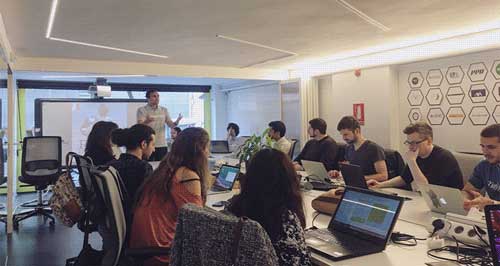
The face-to-face instructional course is the traditional way of teaching. It builds strong foundations of ROS into students.
ROS training is usually a short course, it requires you to focus on learning ROS in a particular environment and a period of time. With the interaction with teachers and colleagues which allows you to get feedback directly. Under the guidance and supervision of instructors, it definitely encourages a better result.
The following are some of the institutions that are holding offline ROS training or summer courses on a regular basis:
5. ROS Books

ROS books are published by experienced roboticists. They extract the essence of ROS and present a lot of practical examples.
Books are good tools for learning ROS, however, it requires high self-discipline and concentration so as to achieve the desired result. (but they are only as good as the person using them, it depends on many factors. It allows many distractions to easily affect your progress, unless the strong self-discipline to ensure is paying full attention at all times)
Some recommend readings:
- Programming Robot with ROS: by combining real-world examples with valuable knowledge from the ROS community, this practical book provides a set of motivating recipes for solving specific robotics use cases.
- ROS IN 5 DAYS Book Collection: a book collection associated with online ROS courses giving you the basic tools and knowledge to be able to understand and create any basic ROS related project.
- ROS Robotics by Example: this book will help you boost your knowledge of ROS and give you advanced practical experience you can apply to your ROS robot platforms.
Do you have any other better ROS learning method? Please, comment to share it with us!

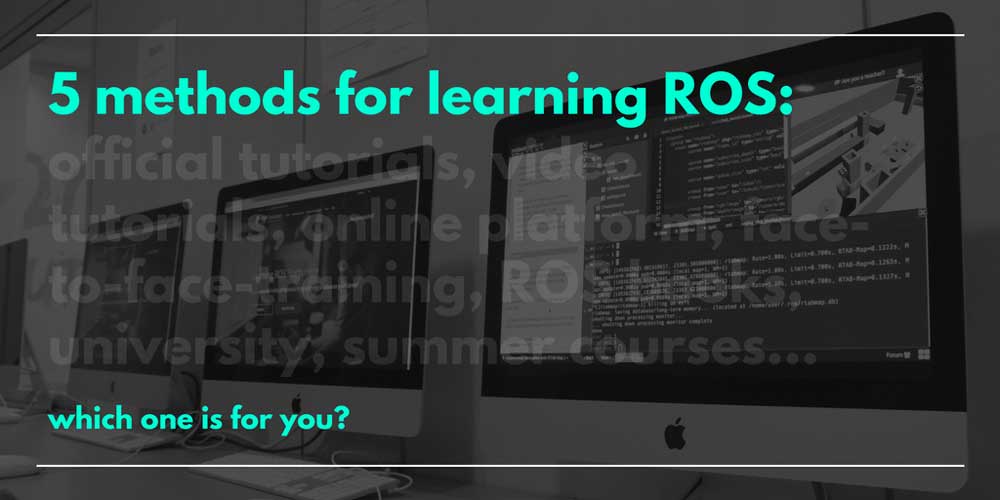

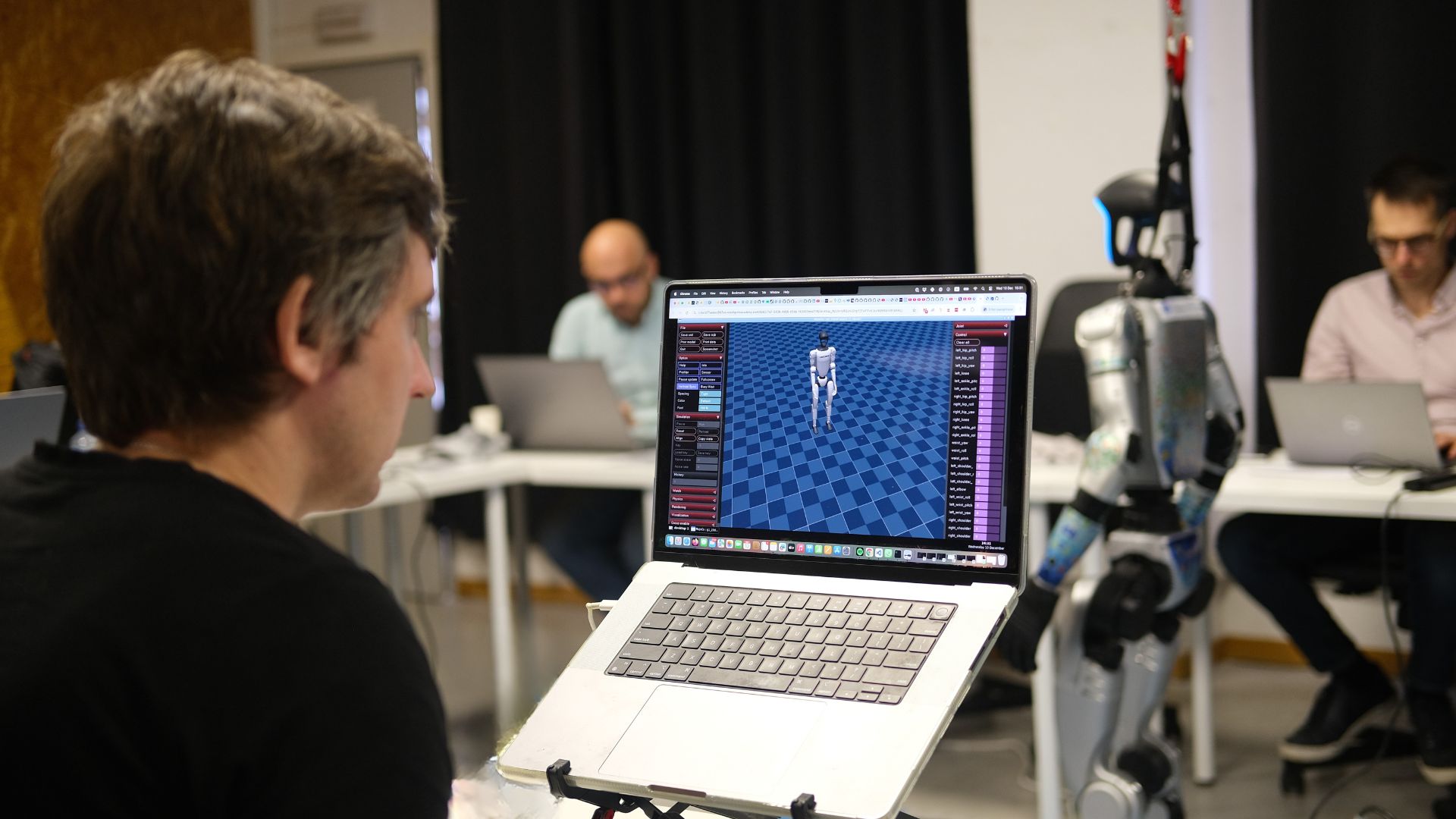



I would also recommend the Youtube 4-video course from the ETH University in Zurich. They’re really good professionals, and the course, even though it may seem a little bit steep to take in, I would say it is worth it. You will need of course a laptop and to install Ubuntu, but it is good material. I definitely recommend to do the exercises that are described in the videos and the documentation they have at the description of the videos.
You mentioned Dr. Anis Koubaa. I have purchased his ROS courses on Udemy.com. They are comprehensive, easy to follow, and presented in an organized and professional style. I highly recommend them.